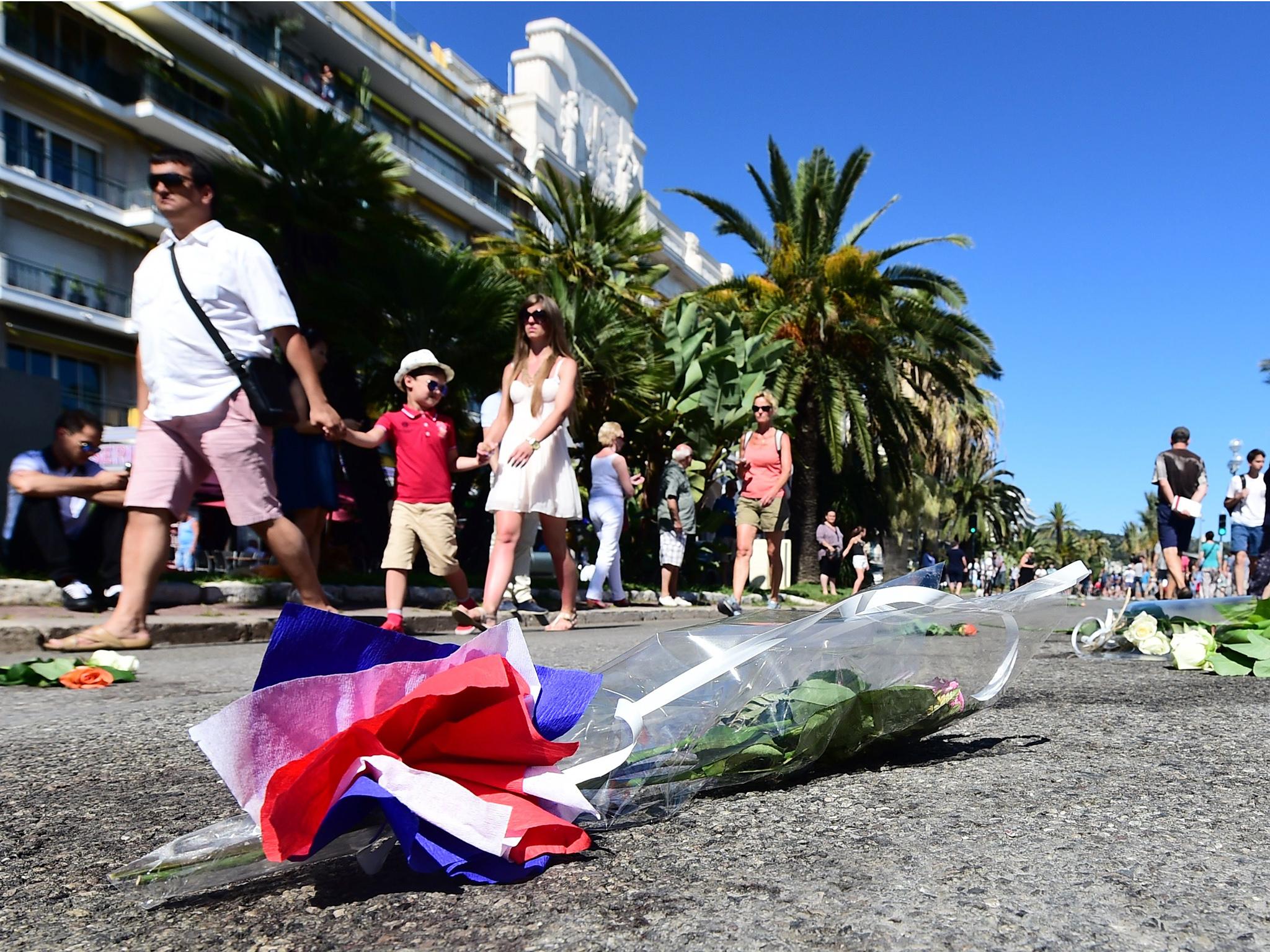Nice attack: Youngest victim was six months old
Patients, hospital staff and victims' families undergo counselling as true horror of Nice attacks is revealed

Your support helps us to tell the story
As your White House correspondent, I ask the tough questions and seek the answers that matter.
Your support enables me to be in the room, pressing for transparency and accountability. Without your contributions, we wouldn't have the resources to challenge those in power.
Your donation makes it possible for us to keep doing this important work, keeping you informed every step of the way to the November election

Andrew Feinberg
White House Correspondent
Of the first 39 injured from the terrorist attack along the Promenade des Anglais taken to the Foundation Lenval Hospital, all but nine were children or those in their early teens, the youngest just six months old.
One of the most shocking aspects of the killing spree which unfolded in Nice was just how many of the victims were young boys and girls. They were the most vulnerable when Mohamed Lahouaiej-Bouhlal drove his refrigerated 19-tonne truck into the families celebrating Bastille Day at the promenade.
Ten of the 84 who died were children, as were more than 50 others wounded, the most serious ones suffering head injuries and broken bones. The six-month-old baby remains in hospital but, say relieved staff, is expected to survive. Two other young victims underwent emergency surgery, but could not be saved
Some of these children have lost a parent, a few are now orphans. The authorities have contacted relations to look after them, but the family of an eight-year-old boy is yet to be traced.
Psychological counselling is being offered to the young patients and their families, as well as staff at the hospital, some of whom have lost relatives but have continued working, taking the occasional break, said a nurse “to get ourselves together, to have a little cry”.
It had been profoundly traumatic for all who have dealt with the relays of broken bodies being brought to the hospital, the ambulance staff had placed what was found beside those injured on stretchers, in these cases dolls, toys, small colourful rucksacks.
“Some of the grown-ups are in such shock that they cannot talk to the psychologists,” said Stephanie Simpson, an official in hospital administration. “But some of the children are talking, the psychologists have heard such terrible things from the children, what they have been through.
“We are a specialist children’s hospital and, of course, we have provided the best possible medical treatment for our young patients. Will they recover? Yes, most of them will be able to do so physically. But mentally, I don’t see how anyone cannot be affected by what had happened. It will, I think, stay with them for the rest of their lives.”
The hospital had been warned that there may be the possibility of a terrorist attack as part of a general threat notification that the Euro 2016 football championship may be targeted. “But that had now finished and I think we began to relax a bit,” said Ms Simpson. “I didn’t think they would target 14 July, when so many families were out there just enjoying themselves. But I suppose it was a symbolic target. These people don’t care who they hurt and kill, old or young.”
Subscribe to Independent Premium to bookmark this article
Want to bookmark your favourite articles and stories to read or reference later? Start your Independent Premium subscription today.
Join our commenting forum
Join thought-provoking conversations, follow other Independent readers and see their replies
Comments